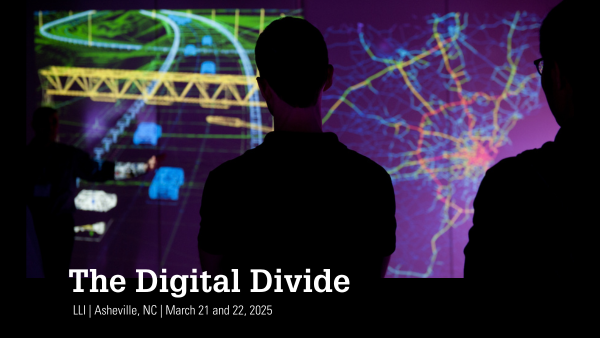.png)
Off-Site Cohort Experience
Park Scholars engage in off-site Learning Laboratories in their first and second year. LLI and LLII provide unique opportunities to examine the contemporary challenges leaders face.
This spring, the Class of 2028 held their Learning Lab I. They elected to focus their experience on the digital divide in North Carolina.
Scholars embarked on a fast-paced deep dive, examining how the digital divide impacts different industries, communities, and decision makers. Throughout the experience, students cultivated a greater appreciation for the complexity of cross-sectional challenges.
Lakshya Mahajan ‘28 shared, “Along with my fellow Park Scholars in the Class of 2028, I learned how broadband access both stems from and perpetuates socioeconomic disparities in communities across the state.”
Going West
This year, scholars visited Asheville, Greensboro, and Marion, NC. Our trip occurred in the wake of natural disasters that ravaged western North Carolina in the past year. The area served as a practical learning lab location for our students to contemplate the human implications of accessible technology.
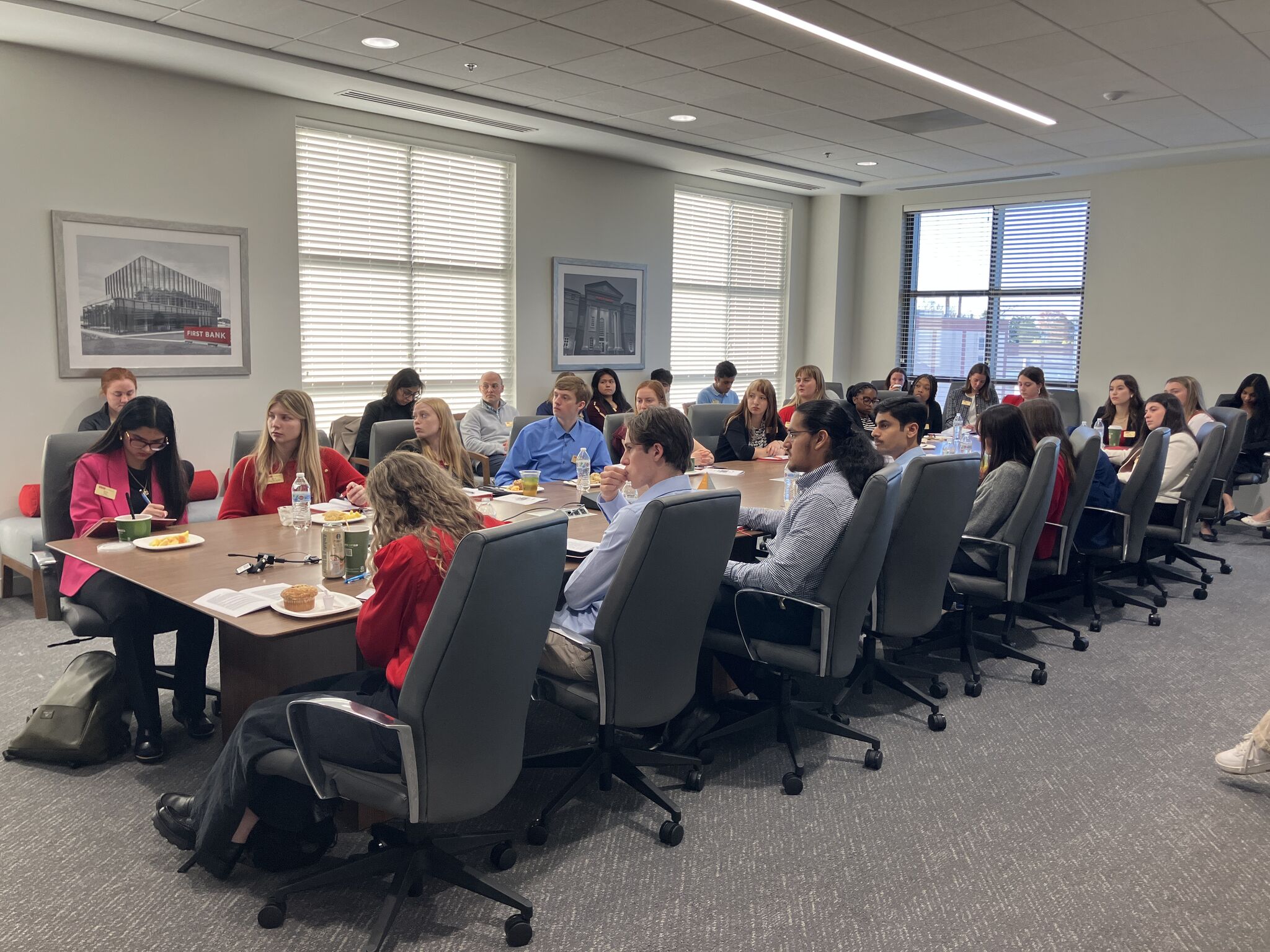
Speakers & Itinerary
Friday and Saturday were packed with speakers, panels and conversations. We visited with Park Scholar Christian Wilson ‘03, Chief Operating Officer at First Bank NC in Greensboro.
We also made new connections, including the mayor of Marion, Steve Little, the Buncombe County sheriff, Quentin Miller, and the CEO of the Mountain Area Health Education Center (MAHEC), Dr. Bill Hathaway. You can look into the details of the LLI itinerary below.
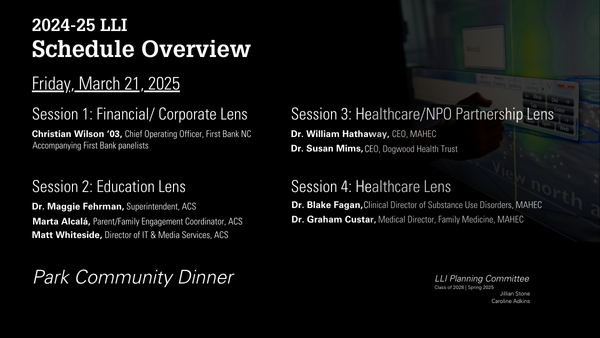.png)
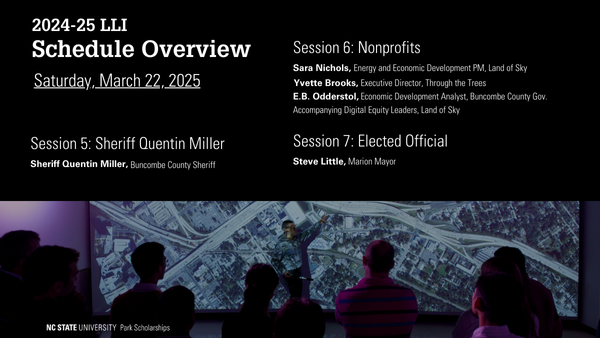.png)
The Digital Divide
As the capabilities of technology continue to evolve, disparity grows between those with access and those without. This is often a matter of socioeconomic and geographic conditions, which limit access due to financial, logistical, or discriminatory reasons.
Logan Lowery ’28 explains in a recent LinkedIn post: “Low-income, rural, and minority communities across the state often have minimal or no access to reliable internet, devices, or digital literacy. This creates difficulties in practically all sectors of society, including education, healthcare, labor, finance, and law enforcement.”
Scholars prepared for the trip by reading materials that illuminated these issues. In this CPP article, Buncombe County economic development analyst E.B. Odderstol shared, “Western North Carolina has two core issues in expanding broadband: the geographical challenge of being a mountainous area and the low density of rural areas.” Scholars were able to meet with Odderstol and her colleagues during the trip to learn more about their leadership in addressing these issues.
“The conversations we had this weekend shed light on the importance of leadership in working towards solutions that promote equitable access and opportunity for all. The digital divide is not just a technology issue; it’s a critical component of social justice and economic mobility.”- Lindsay Salladino | LinkedIn Post
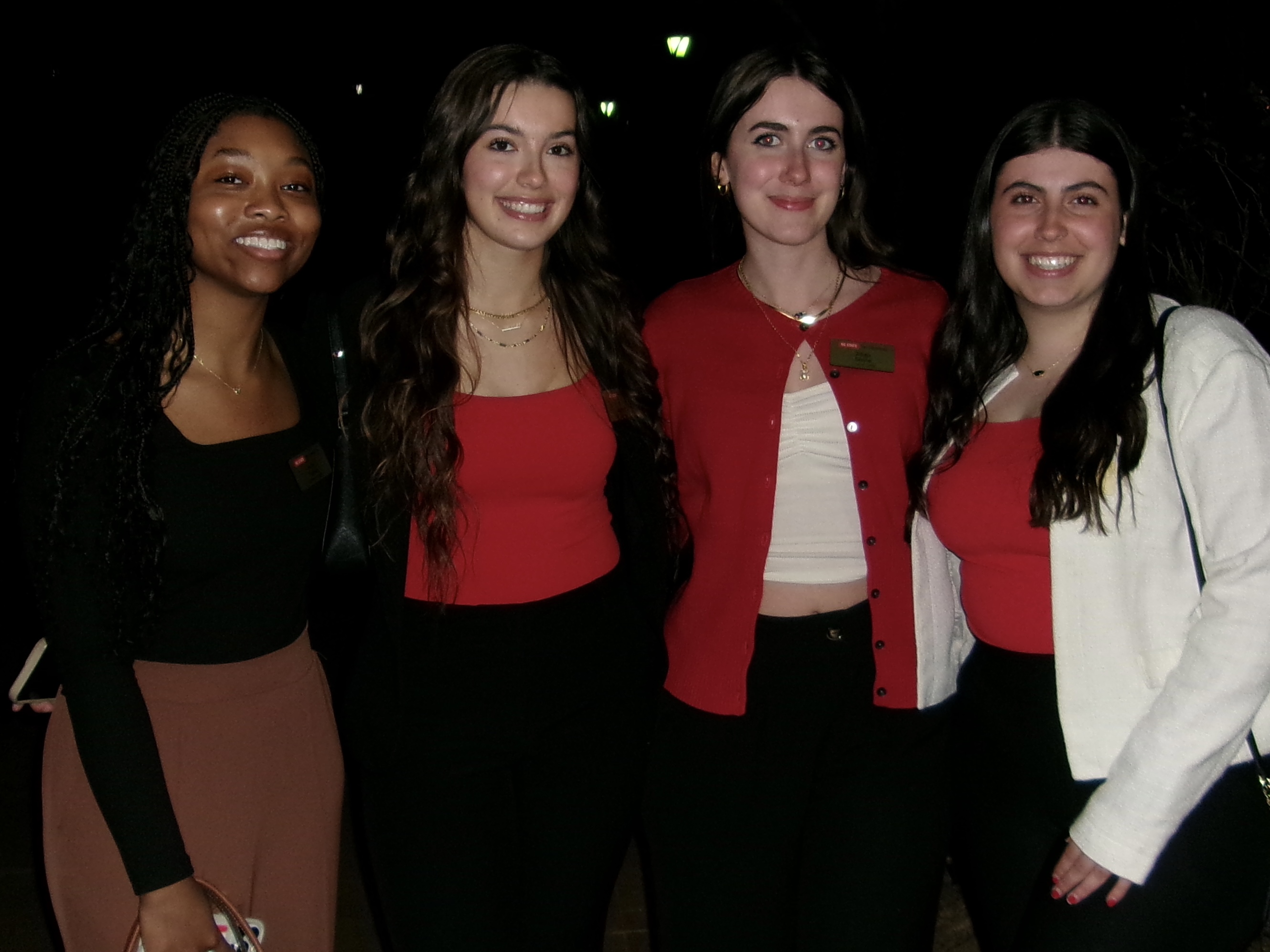
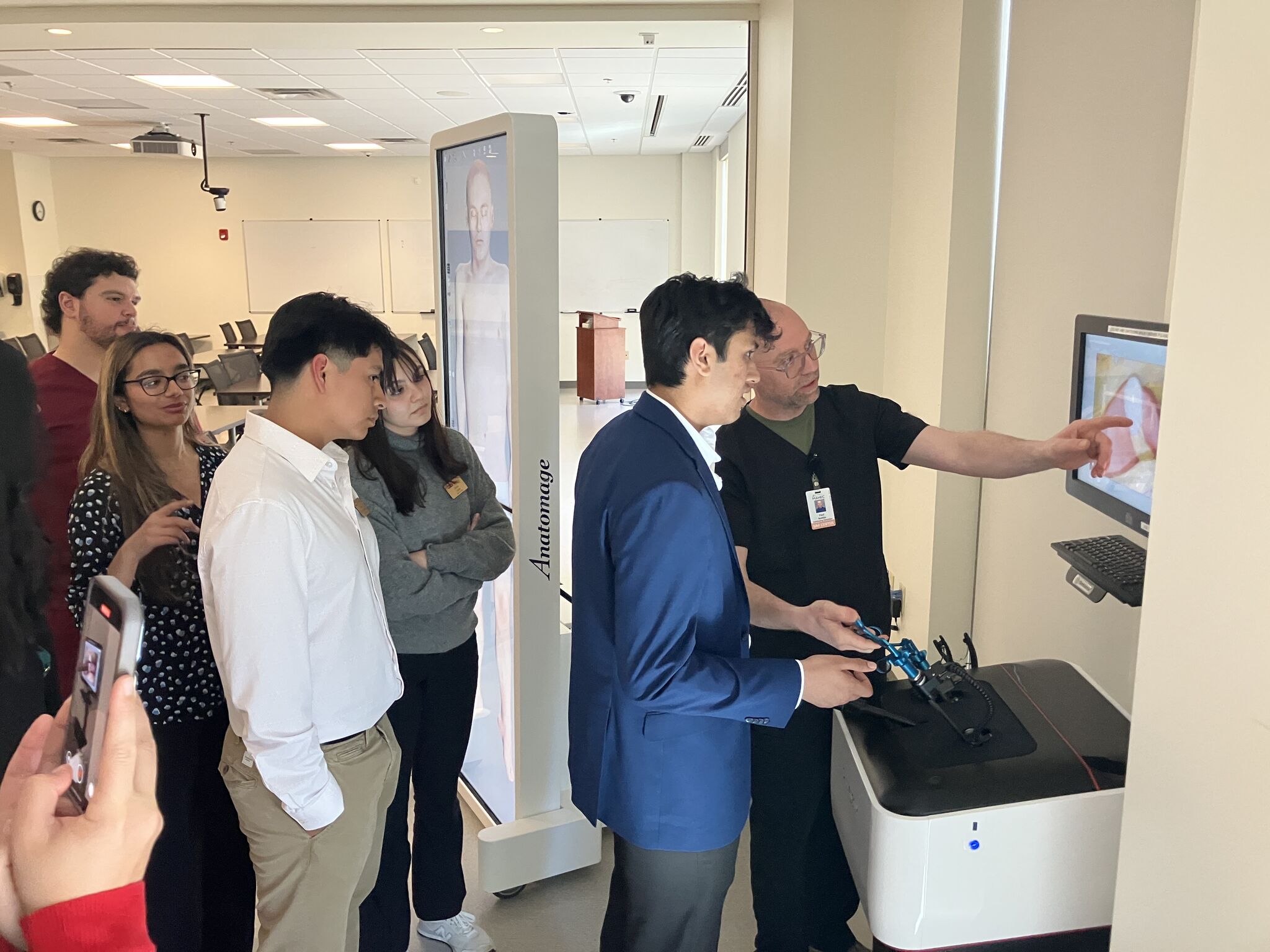
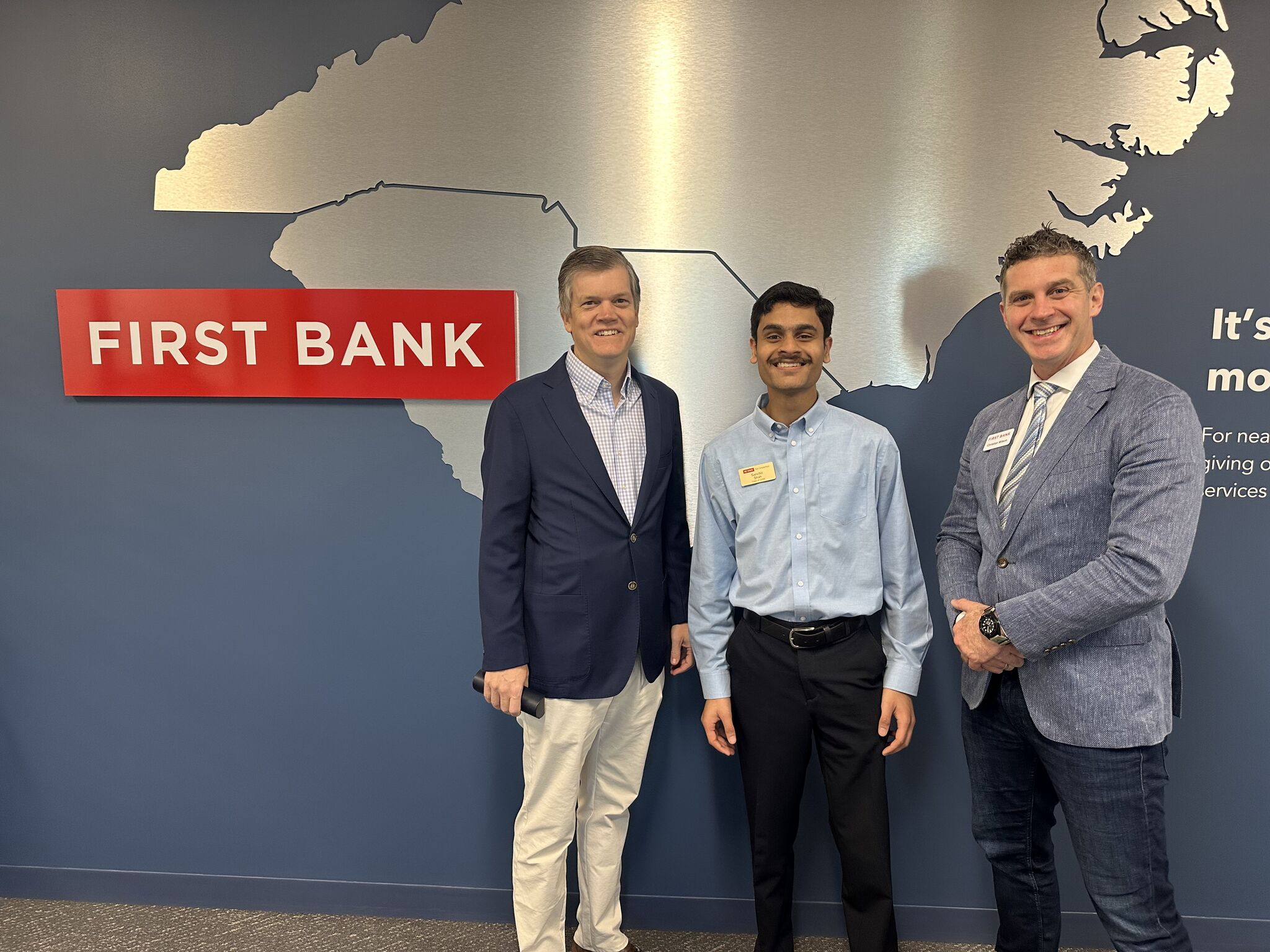.jpeg)
Scholar Experience
Lessons in Leadership: Approaches to Addressing Challenges
Learning Labs are designed to offer insight into how leaders address complex problems. Traits like listening, charisma, and community passion stood out across scholar reflections.
One anonymous participant shared, “All the speakers had a love and passion for their communities… they embraced challenges and worked to help everyone—not just those convenient to help.”
“All of the leaders had very different challenges… yet they had similar themes—mainly listening to their people before acting.” -Anonymous participant
Throughout their time as scholars, they will continue to examine the interconnectedness between their passions and challenges like the digital divide. Immersive learning opportunities like these prepare students to lend themselves to the challenges that call to them.
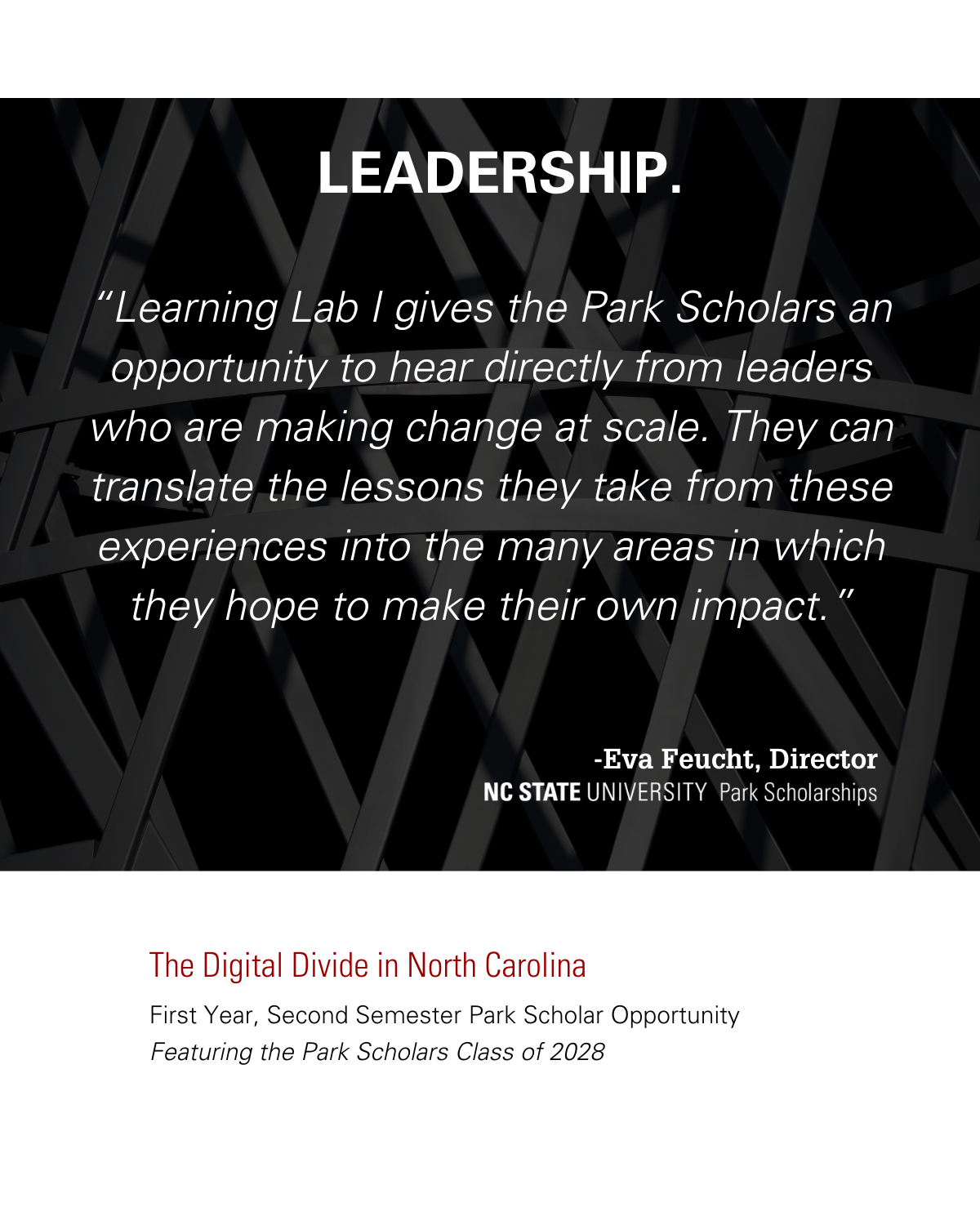.png)
Shout-out to the Class of 2028 Learning Lab I Committee
Chairs: Caroline Adkins ‘28 and Sofia Mendolia ‘28
Members: Rosemary Bumgardner ‘28, Vendela Gustafsson ‘28, Julia Grace Hardy ‘28, Ashika Kamjula ‘28 and Jillian Stone ‘28